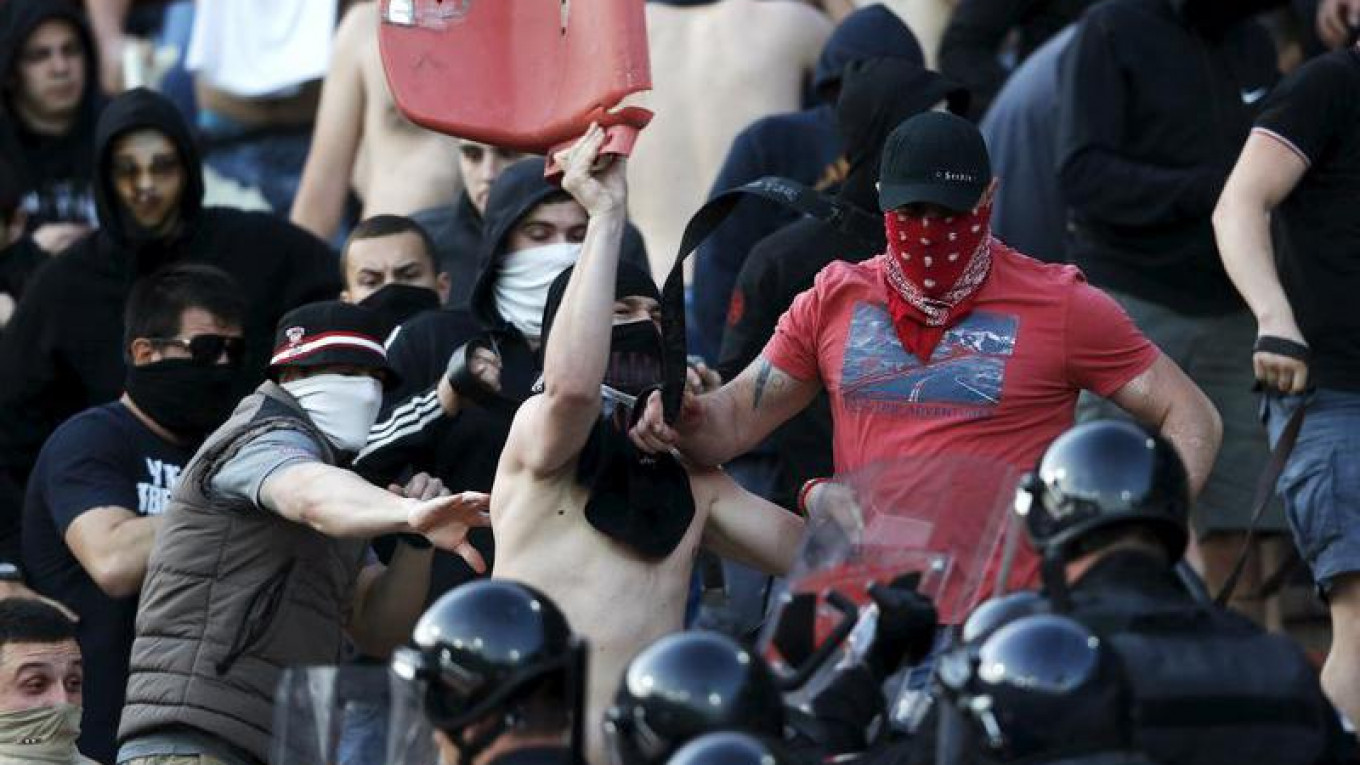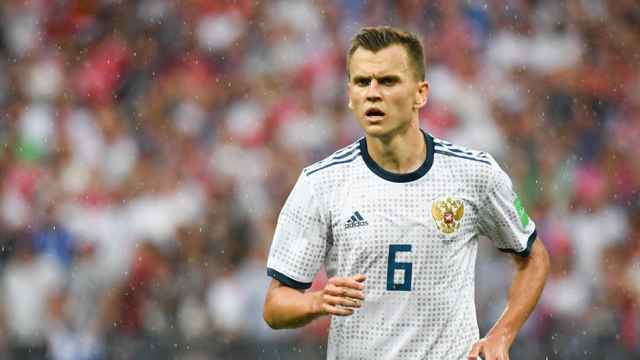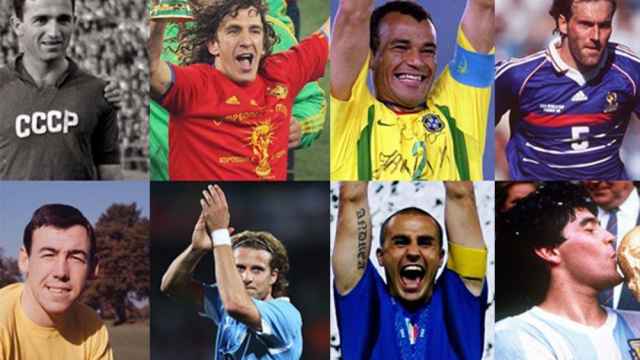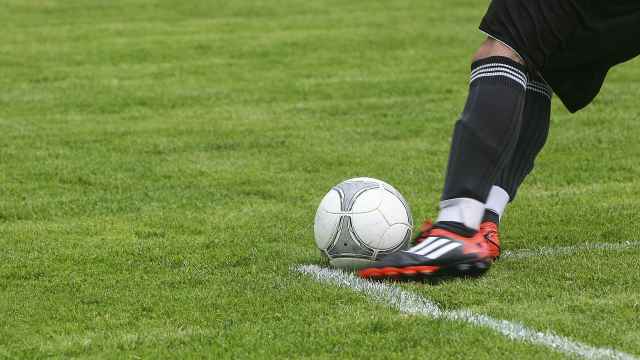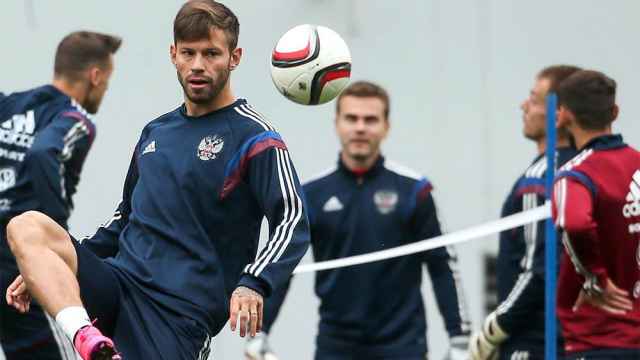Football legends Diego Maradona, Pele and Spartak Moscow icon Nikita Simonyan all took part on Friday in the draw for the World Cup next year in Russia. Here’s a look at what these matchups mean for Russian fans and the three host cities.
Satisfied Russians
The Russian national team was drawn alongside Uruguay, Egypt and Saudi Arabia in Group A, which Russian manager Stanislav Cherchesov and his players should be more than satisfied with: The hosts avoided the toughest teams, and Russia can expect to advance to the round of 16, at least.
Drawing Uruguay also meant Russia would avoid playing England. When the two sides met at the European Championships France last year, Russian and English hooligans clashed, and fights even broke out in the stadium at the end of the game.
In fact, England will play all of their three group matches in the smaller cities, Volgograd, Nizhny Novgorod and Kaliningrad. None are known for their hooligans, and England fans should feel safe when they visit their team’s matches.
If England finishes second in their group, however, they’ll play at Spartak Stadium in Moscow in the Round of 16, which will take the traveling fans close to many of the hooligans who attacked them in France.
Authorities will also be happy that Russia avoided Croatia. Diehard Russian fans have close links with like-minded Orthodox Christian fans in Serbia, and playing against their archrivals could have wreaked serious havoc across whichever city the game would have been played in.
Province party
While the biggest games will be played in Moscow and St. Petersburg, the World Cup also gives the visitors a chance to see more of Russia than just the two most famous cities. Several of the biggest teams will have to travel around the country, meaning that even some of the smaller host cities will get to host big games.
England and Belgium will, for example, clash in Kaliningrad, while Argentina take on Croatia in Nizhny Novgorod and Portugal meets Spain in Sochi. That means these cities will get their fair share of attention.
While there are no specific groups that smell of trouble beforehand, major risks loom over the World Cup. The largest lies in the first round, where multiple countries will play in Moscow — including the Russia, Germany and Poland.
In 2012, when Poland and Ukraine hosted the European championship, Russian hooligans rioted in the streets of Warsaw, and 123 people, Russians and Polish, were arrested in one day.
The police had to use water cannons, tear gas and even fire warning shots to get the crowds under control. Now, the Polish hooligans have the chance to return the favor in the Russian capital, something they have surely longed for.
Both Polish and Russian hooligans are known to be among the most dangerous in the world, and they are battling for the reputation of Europe’s elite. Just like for the players, the World Cup is also the biggest stage for the hooligans, who will seek to make the most of the spotlight.
Add to the mix Germany, another country infamous for its hooligans, who also have a difficult relationship with both Poland and Russia because of World War II and what you have is a recipe for disaster.
Racism and Islamophobia
One of the hottest topics of debate prior to the World Cup in Russia has been racism.
Between 2012 and 2017, FARE Network, an NGO combatting racism in football, and SOVA Center, a Moscow-based NGO conducting research on nationalism and racism in Russia, recorded a staggering 405 incidents of racism and far-right incidents in Russian football.
The two NGOs also revealed that the most common targets of the attacks were Muslims from the Caucas. Given this, it is worrying that Russia are in group with two Muslim countries — Saudi Arabia and Egypt.
Saudi Arabia aren’t expected to have many fans who will travel to Russia, but the football-mad Egyptians are quite a different case. The World Cup in Russia is Egypt’s first since 1990, and fans are expected to travel in big numbers.
With the draw done, football fans around the globe can finally start looking forward to arguably the biggest sports event once again.
Russian security officials would be wise to focus on their own preparations before the show starts on June 14.
Toke Theilade is the Editor-in-Chief of Russian Football News, the only English language news site covering Russian football. The views and opinions expressed in opinion pieces do not necessarily reflect the position of The Moscow Times.
A Message from The Moscow Times:
Dear readers,
We are facing unprecedented challenges. Russia's Prosecutor General's Office has designated The Moscow Times as an "undesirable" organization, criminalizing our work and putting our staff at risk of prosecution. This follows our earlier unjust labeling as a "foreign agent."
These actions are direct attempts to silence independent journalism in Russia. The authorities claim our work "discredits the decisions of the Russian leadership." We see things differently: we strive to provide accurate, unbiased reporting on Russia.
We, the journalists of The Moscow Times, refuse to be silenced. But to continue our work, we need your help.
Your support, no matter how small, makes a world of difference. If you can, please support us monthly starting from just $2. It's quick to set up, and every contribution makes a significant impact.
By supporting The Moscow Times, you're defending open, independent journalism in the face of repression. Thank you for standing with us.
Remind me later.


